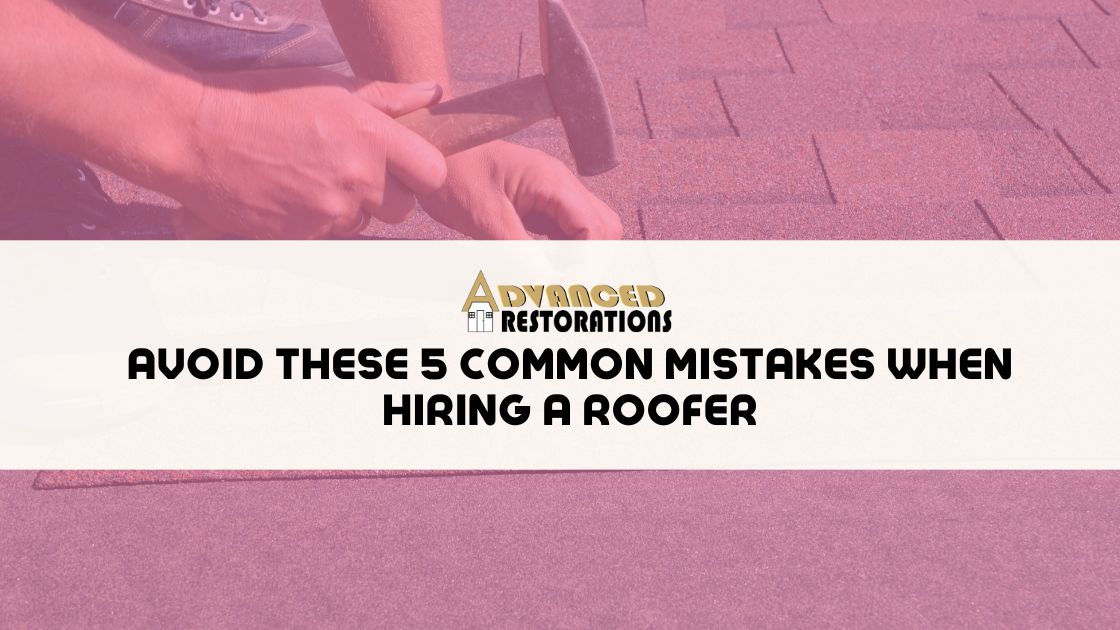
Avoid These 5 Common Mistakes When Hiring a Roofer
Hiring the right roofing contractor can make the difference between a smooth, successful roof replacement and a costly disaster. In the Springfield, MO and Ozarks region, where unpredictable storms and changing building codes are common, selecting a trustworthy and qualified roofer is critical.
Here are five common mistakes homeowners make when hiring a roofer and how to avoid them.
1. Not Verifying Licenses, Insurance, and Certifications
Why It Matters:
Roofing contractors in Missouri are expected to follow local regulations and building codes, especially when working with insurance claims or structural changes. Hiring someone without the proper credentials leaves you exposed to liability and subpar work.
What You Should Do:
-
Ask for proof of liability insurance and workers’ compensation.
-
Confirm that the contractor is licensed to work in your area.
-
Look for certifications from leading manufacturers like Owens Corning. For example, Owens Corning Platinum Preferred Contractors must meet strict standards and offer enhanced warranty options.
✅ Red Flag: The contractor avoids or delays sharing proof of insurance or licensing.
2. Going with the Lowest Bid Without Asking Why
Why It Matters:
A low estimate might sound appealing—but it often means the contractor is cutting corners on materials, labor, or permits. This could cost you more down the road when repairs or code violations arise.
What You Should Do:
-
Ask for a detailed breakdown of the estimate.
-
Compare the material quality, warranty coverage, and timeline—not just the price.
-
Remember that a roof is a long-term investment in your home’s protection.
✅ Red Flag: A bid is significantly lower than others without clear explanation.
3. Failing to Get a Written Contract
Why It Matters:
A handshake or verbal agreement isn’t enough when you’re investing thousands into your home. Without a written contract, you may have no legal recourse if something goes wrong.
What You Should Do:
-
Ensure the contract includes material types, installation details, payment schedule, estimated start and completion dates, and warranty terms.
-
Read everything carefully—don’t sign under pressure.
✅ Red Flag: The contractor says they’ll “get to the paperwork later” or doesn’t provide a formal contract.
4. Not Checking Reviews or References
Why It Matters:
A roofer might sound good in person—but their past work and customer satisfaction tell the real story.
What You Should Do:
-
Look for reviews on Google and Facebook from homeowners in your area.
-
Ask the contractor for recent references and photos of completed work.
-
Look for signs of consistent professionalism, communication, and cleanup.
✅ Red Flag: The contractor can’t provide references or has mostly negative or inconsistent reviews.
5. Ignoring Building Code Compliance
Why It Matters:
Local codes—like proper decking thickness, valley linings, or ice barrier installation—ensure your roof can withstand our Midwest weather. Contractors who skip code requirements may leave you with a failing roof and voided warranty.
What You Should Do:
-
Ask the contractor how they handle code compliance.
-
Request details about the materials they use and how they meet local regulations.
-
Confirm they will pull necessary permits and pass final inspections.
✅ Red Flag: The contractor dismisses questions about building codes or says permits aren’t needed.
Partner with a Certified, Local Expert You Can Trust
At Advanced Restorations, we take pride in helping Springfield and Ozarks homeowners make informed, confident roofing decisions. As an Owens Corning Platinum Preferred Contractor, we meet the highest standards for licensing, insurance, craftsmanship, and customer care.
Whether you’re replacing a storm-damaged roof or planning ahead, we’re here to protect your home with quality materials, local code expertise, and clear, honest service every step of the way.
Schedule your free inspection today—we’ll walk you through everything you need to know to avoid costly mistakes and make the best decision for your roof.
